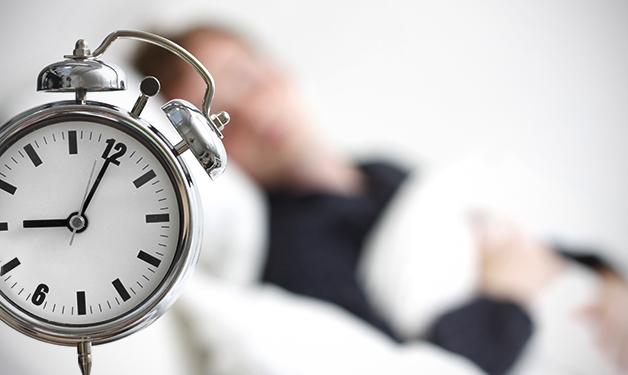
Work is piling up, homework needs doing with the kids, and one of the first things sacrificed to get things done is sleep. Dr. Glenn Landry explains why it’s important to pay attention to circadian rhythms and how chronic sleep deprivation may contribute to cognitive decline over time as we get older.
Q: I feel like I function pretty well on four hours of sleep per night, to an extent. In what ways might I see cognitive improvements if I were to get the recommended eight to nine hours of sleep?
A: This is such an important question, given the 24-hour society we live in and the fact that sleep is typically sacrificed first in an effort to meet the demands of work, family, and friends. In much the same way that negative effects of smoking, poor diet, and excessive alcohol consumption can take many years to develop; human health and performance deficits associated with chronic sleep debt – resulting from persistent short duration or fragmented sleep – may not be immediately evident.
Q: What exactly is a circadian rhythm? Does everyone have a unique circadian rhythm?
A: Circadian rhythms are daily biological rhythms of physiology and behaviour. The sleep-wake rhythm is perhaps the most recognizable circadian rhythm in humans, but we have many other circadian rhythms that serve to coordinate timing of physiology and behaviour with daily cycles of the environment in which we live (e.g. the solar day/night cycle). Circadian rhythms are basically the same for all of us but individual differences do exist as a function of genetics and our environment..
Q: Do I disrupt my circadian rhythm when I lose sleep night after night? Why is it important to pay attention to it?
A: In a word, yes! By being active and exposing yourself to light at night – when you would normally be sleeping – you disrupt the timing of your circadian rhythms. Light is the primary time cue our biological clock uses to synchronize our circadian rhythms with our environment. Seeking out bright light during the day and avoiding light at night are very important for proper circadian regulation. Circadian dysregulation can have significant impact on human health and performance, both in the short term (e.g. jet-lag) and over time (e.g. shift-work malaise).
Growing evidence suggests chronic sleep durations of less than 6.5 hours are predictive of poor health and cognitive decline. So to answer your question, the benefits of getting at least eight hours of sleep each night are likely to be better health and cognitive function later in life. I would argue that quality sleep – both in terms of duration and continuity – is a cornerstone of healthy aging.

Q: Is there a stronger connection between sleep deprivation and cognitive decline as we get older?
A: Certainly older adults find it more difficult to overcome the negative effects of circadian dysregulation, as evidenced by comparisons of older vs. younger shift-workers. I would add that we know both sleep quality and cognition decline as a function of aging. Older adults typically have at least one chronic sleep complaint, the most common being an inability to stay asleep at night.
For decades we have considered these changes a normal course of aging, but in recent years scientists have begun to explore the possibility that addressing sleep complaints may be important to combat cognitive decline in older adults. The majority of my current research efforts focus on this line of scientific inquiry.
Q: What is chronotherapeutics and how is this used to ‘treat’ sleep deprivation?
A: Chronotherapeutics refers to a branch of medicine involving circadian regulation and its effects on human health and performance. Chronotherapy refers to interventions specifically designed to remedy circadian dysregulation. Bright Light Therapy (BLT; specifically timed exposure to very bright light) is perhaps the best known example.
Q: What other health disorders or concerns might benefit from chronotherapeutics?
A: The obvious answer that comes to mind is Seasonal Affective Disorder, which is a mood disorder associated with short days and limited sunlight exposure during winter months. Delayed Sleep Phase Disorder – a condition whereby one typically stays up very late at night and has great difficulty waking up in the morning – is another example that has been successfully treated with BLT.



